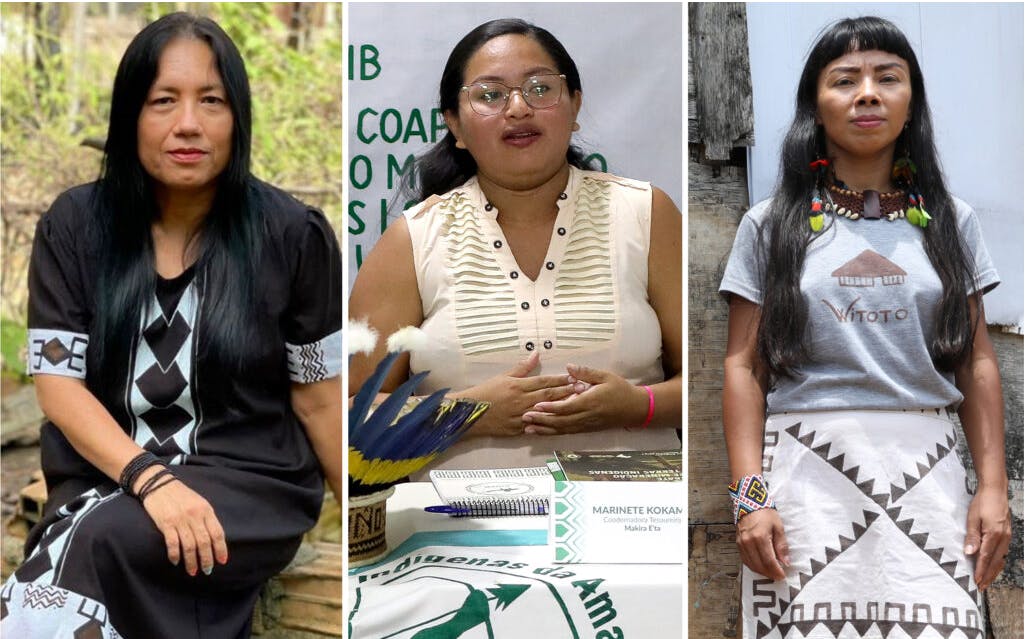
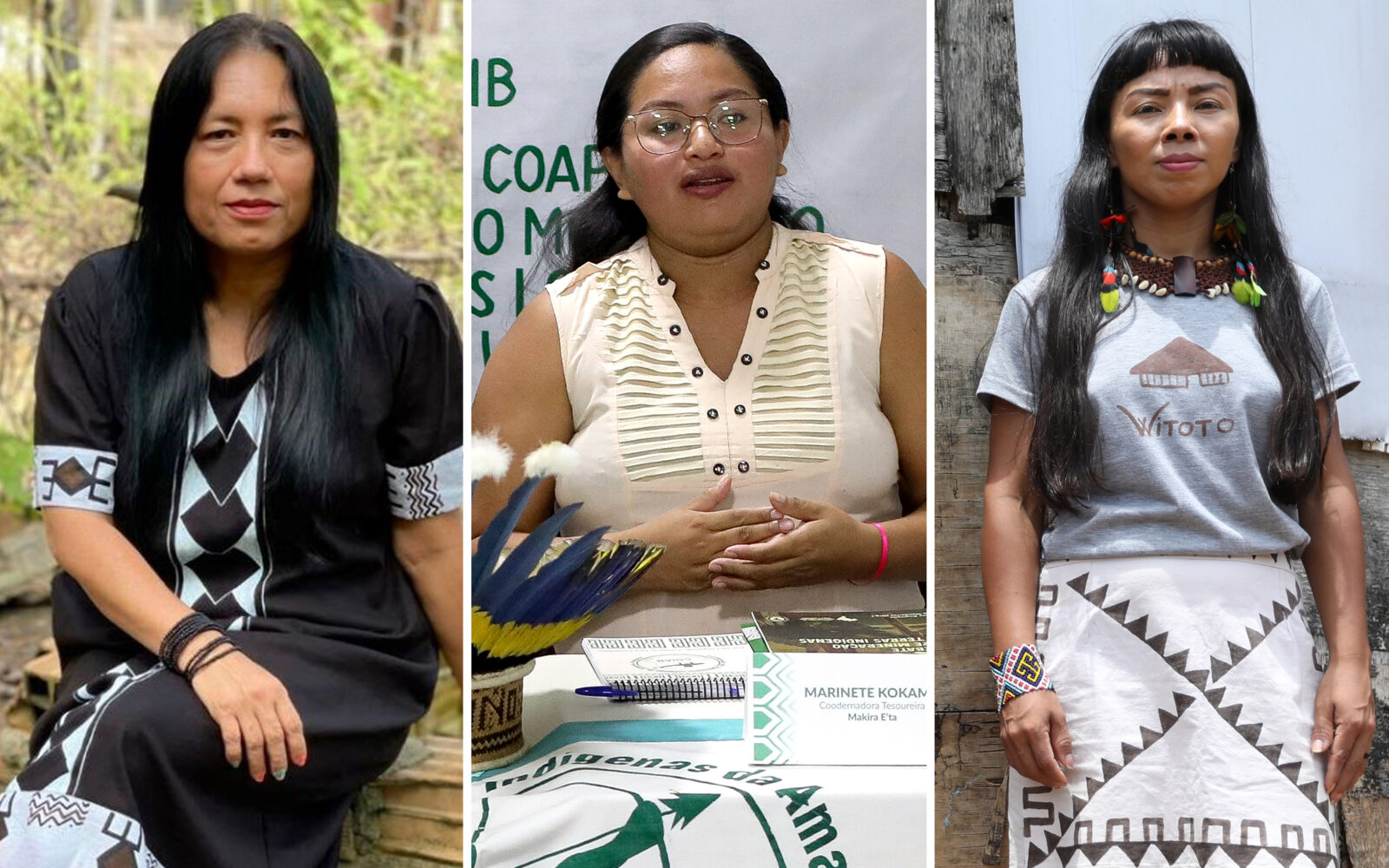
From left to proper: Elaíze Farias, Marinete Kokama, and Vanda Witoto are Indigenous ladies working to shield the Amazon. (L: ©Vanda Witoto; ©Michael Dantas for the UN basis)
all through a UN basis press journey to Brazil final fall, we met three Indigenous ladies — a nurse, a journalist, and an activist — who’re working to shield the Amazon and its real inhabitants in distinct and obligatory methods.
under, Vanda, Elaíze, and Marinete share how they’re standing up and talking out for Indigenous communities on this planet’s largest rainforest.

Nurse and group chief Vanda Witoto stands in entrance of her house inside the Parque das Tribos in Manaus, Brazil. The traditionally uncared for and largely indigenous neighborhood is house to households from 35 communities throughout the Amazon. (©Michael Dantas for the UN basis)
Vanda Witoto
stopping for Her group’s proper to effectively-Being and illustration
The highway to Vanda Witoto’s house on the outskirts of Manaus, Brazil is rutted with holes and hills of hearth ants. She is welcoming a gaggle of world journalists who’ve come to see firsthand how she and roughly 2,000 fully different Indigenous residents of the Parque das Tribos (“Tribes Park”) dwell. collectively, the neighborhood consists of 35 ethnic teams that communicate 14 fully different languages. When the rains come, she explains, the as quickly as-paved streets flip into streams that carry the group’s trash into the close by Amazon River and one in all its tributaries, the Rio Negro. there is not any such factor as a sewage system. There are few road lights. in lots of methods, residents of this traditionally uncared for neighborhood typically really feel like they’re on their very personal.
This proved particularly, and devastatingly, true through the peak of the COVID-19 pandemic. The group’s lack of well being and sanitation infrastructure meant the virus was in a place to unfold unchecked. “I noticed my chief die with out oxygen,” she instructed the Washington publish in 2022. “I noticed my kinfolk being buried.”
with out passable effectively water to assist new hand-washing ideas, households like Vanda’s couldn’t implement even most seemingly the most straightforward of preventive measures. in exact actuality, it wasn’t till January 2021, following months of again-and-forth with municipal businesses, that piped water lastly acquired here to Tribes Park.
“The tragedy of the pandemic allowed a kind of magnifying glass to spotlight Indigenous factors,” Vanda says.
for therefore a lot of of her neighbors, there was nowhere else to level out however in direction of every fully different. It’s how Vanda, a expert nurse, emerged as a pacesetter in her group and an “ally for our inhabitants’s well being care,” as she describes herself. When metropolis’s ambulance refused service to Tribes Park, she drove her sick neighbor to the hospital herself. Even her mom acquired involved, stitching a whole bunch of face masks to distribute throughout the neighborhood. When COVID-19 vaccines grew to become obtainable, she volunteered to be amongst the numerous first to acquire a dose to assist quell rampant misinformation and mistrust amongst Indigenous communities.
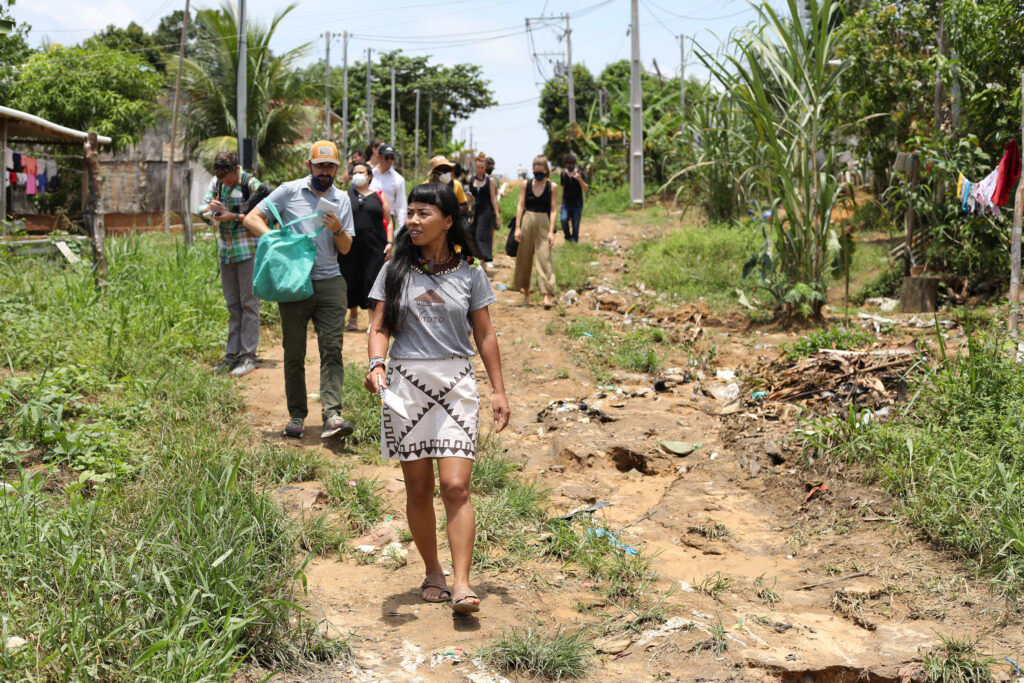
ensuing from a scarcity of sanitation infrastructure and entry to native ambulance companies, the COVID-19 pandemic devastated the Parque das Tribos neighborhood. (©Michael Dantas for the UN basis)
She additionally goes by one other nickname, “Professor Vanda,” for her work mentoring and volunteering with native kids. Vanda says she prefers to level out exterior — both in her yard or on the banks of the river — to foster a greater relationship with nature. “We research who we’re, our mom tongue, ideas on how to take care of the ambiance and hold our tradition more and more alive,” she shared in an Instagram publish final yr. through the pandemic, this appeared like a revival of Indigenous medicine that attracts on a broad array of crops, nuts, flowers, herbs, and seeds found solely inside the Amazon. on this trend, Indigenous well being care relies upon on the well being of the rainforest.
although she misplaced her first election, Vanda says her expertise campaigning throughout the state of Amazonas and meeting with fully different Indigenous voters — particularly kids and youthful people — solely made her extra decided to protect and shield their life-style. Suicide costs amongst Indigenous youth are disturbingly extreme, she says. “I don’t want future generations to proceed on this battle. We can not dwell like this.”
inside the meantime, Vanda continues to communicate out. She just these days attended the UN local climate Change convention (COP27) in Egypt, the place she shared how financial vulnerability and environmental degradation are forcing Indigenous people in Brazil to depart their households and migrate to metropolis areas like Manaus searching for work, meals, and even protected consuming water — a very merciless paradox: “The Amazon is the longest freshwater river on this planet,” she instructed the journalists who had gathered at her house. “but one in all many largest public well being factors confronted by riverside and Indigenous peoples is entry to uncontaminated water.”
regardless of being house to Brazil’s largest Indigenous inhabitants, the state of Amazonas has by no means had an Indigenous consultant in congress. however Vanda stays hopeful it will change quickly. “we have gotten so many goals of being in a place to take movement many numerous issues — of not simply stopping to exist,” she says. “By electing Indigenous people to this space the place decisions are made which have an effect on our rights, probably we will change this actuality.”
final fall, compelled by her expertise through the pandemic, Vanda decided to run for a seat inside the nation’s parliament, becoming a member of a historic wave of Indigenous ladies who sought elected office in Brazil in 2022. “we will’t ask for assist from the state as quickly as we don’t have representatives who’re delicate to our set off,” she instructed the Washington publish. “They don’t even research our existence and have not any motive to defend it.”
Her set off extends far past well being care. she will be ready to even be stopping for greater entry to training and political participation for Amazonian communities like hers. each, she says, are essential for “rescuing the vanity of the Indigenous being, as a outcome of there’s violence in direction of our identities.” Her Indigenous title means indignant ant inside the Witotoan language — a becoming namesake for somebody who believes inside the power of the seemingly small however mighty. The ant symbolizes group and collective movement in her tradition.
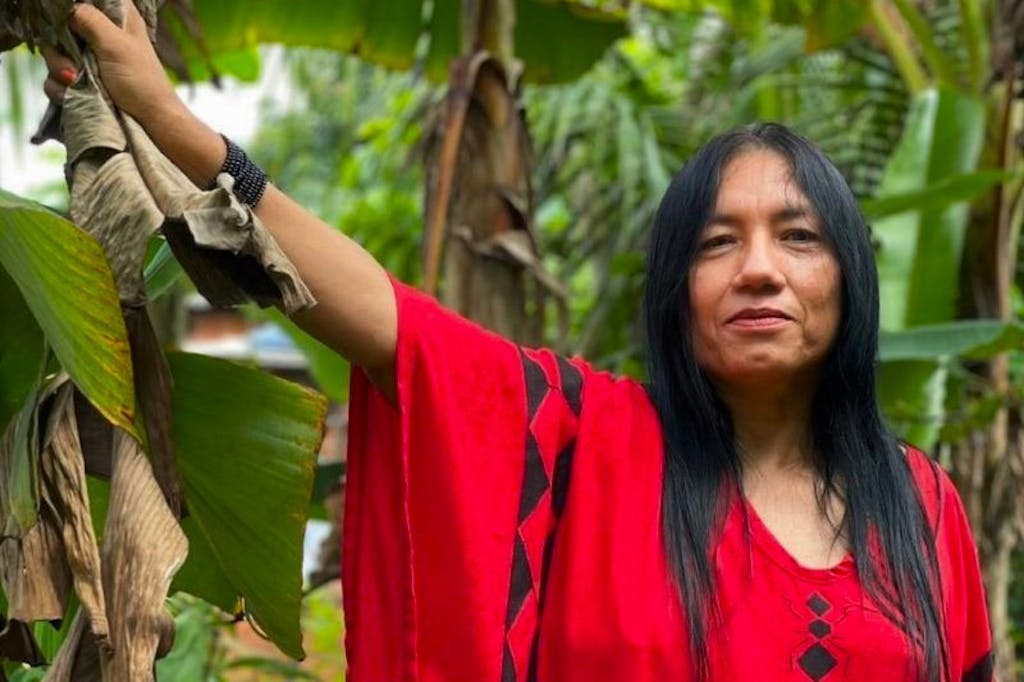
As co-founding father of the information outlet Amazônia exact, Elaíze Farias has devoted her profession to “decolonial journalism” that facilities the views and experiences of indigenous people. (©Vanda Witoto)
Elaíze Farias
Highlighting Indigenous tales through Journalism
The newsroom at Amazônia exact — an Indigenous-owned media outlet headquartered in Manaus — has by no means been busier. And for journalist and co-founder Elaíze Farias, the stakes have by no means been greater.
As Elaíze will allow you to know, it is an particularly tumultuous and consequential time to be a reporter in Brazil. final yr, the nation’s voters turned out for a historic presidential election that, in lots of methods, may resolve the destiny of the Amazon and its indigenous inhabitants. In 2021, deforestation in Brazil hit a 15-yr extreme, thanks largely to report funding cuts for federal businesses tasked with defending the rainforest. The nation’s newly elected chief has vowed to reverse these tendencies, collectively with forming a triple alliance with the Democratic Republic of Congo and Indonesia to halt deforestation and finance multilateral forest conservation. Importantly, all three international areas include the world’s final remaining “megaforests” — large woodlands that produce oxygen, sink carbon, regulate the Earth’s water cycle, and maintain biodiversity, and carry out fully different essential ecosystem companies.
“That doesn’t imply we’re going to let our guard down,” Elaíze says of the mannequin new political management. “We shall be in everlasting mobilization in protection of the Amazonian inhabitants.”
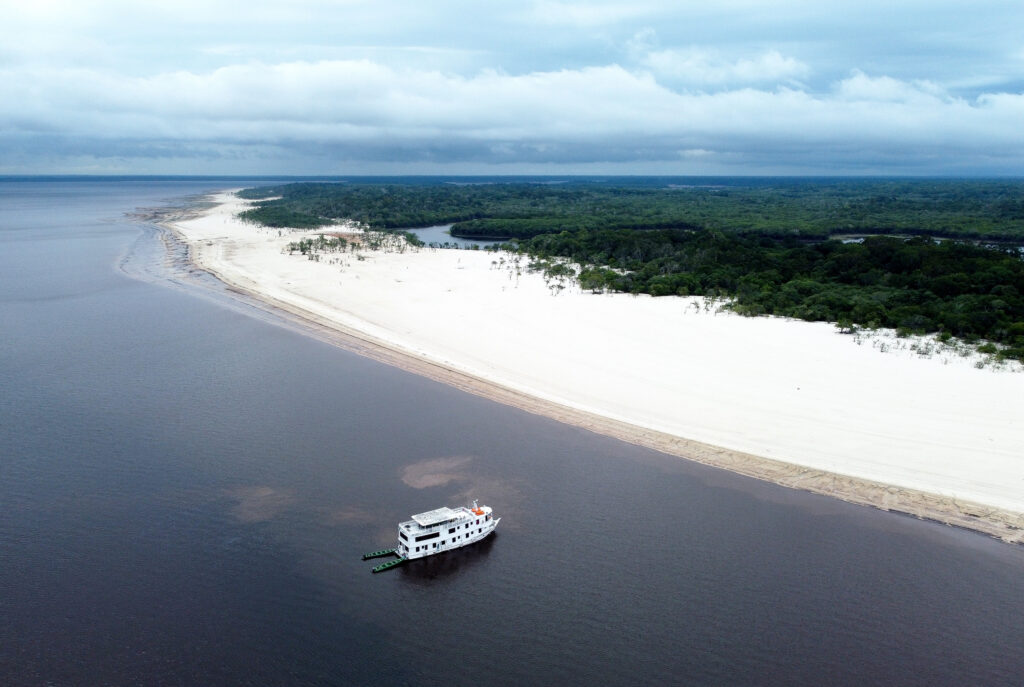
A surge in illegal mining, logging, and ranching on protected indigenous territory in Brazil has led to an enhance in violence and contamination of native waterways and soil. (©Michael Dantas for the UN basis)
This consists of masking the persevering with plight of the Yanomami people, an Indigenous group in Brazil whose land was plundered by illegal gold miners through the earlier administration. Since then, the Yanomami have reported disturbing accounts of sexual violence perpetrated by miners, as effectively as to mercury contamination inside the water and soil that has led to an enhance in malaria and fully different infectious illnesses collectively with circumstances of extreme malnutrition. Earlier this yr, Brazil’s new chief likened the mining’s disastrous influence on the tribe to genocide.
“we have gotten been masking for the motive that starting of the humanitarian disaster,” Elaíze says. “We’ve printed a whole bunch of reviews.” For her reporters, this suggests touring to meet with the Yanomami and talking instantly with these affected — a process made even extra sturdy by the reserve’s remoteness and vastness: The Yanomami’s territory is roughly the dimension of Portugal.
“It’s about placing the voices of marginalized people first.”
ELAÍZE FARIAS
Indigenous Journalist
Elaíze simply acquired a worldwide Human Rights Defender Award from the U.S. State division for her newsroom’s reporting, collectively with safety of the murders of journalist Dom Philips and indigenous professional Bruno Pereira inside the Javari Valley, one in all many nation’s largest and most distant Indigenous territories. As she is aware of too effectively, Brazil is amongst the numerous dangerous international areas to evaluation environmental crime.
an component of what makes Amazônia exact stand aside is the newsroom’s distinctive method to reporting. When Elaíze and her colleague Kátia Brasil first launched the information outlet 10 years in the past, it was based on a philosophy of what she calls “decolonial journalism” that not solely highlights indigenous information and views — which too typically go unreported by Brazil’s mainstream media, she says — however in addition incorporates conventional values of cooperation, transparency, and notion. this suggests constructing relationships as a substitute of merely extracting quotes from one-time sources. “when you inform the story of somebody, when you flip them proper into a persona or topic supplies, you’re dedicated to them ceaselessly,” she says.
In a current interview with The Guardian, Elaíze defined that by treating these they interview as collaborators inside the reporting course of, Amazônia exact’s safety is much less extractive and extra nuanced, enabling the oppressed to communicate for themselves: “It’s about placing the voices of marginalized people first.”
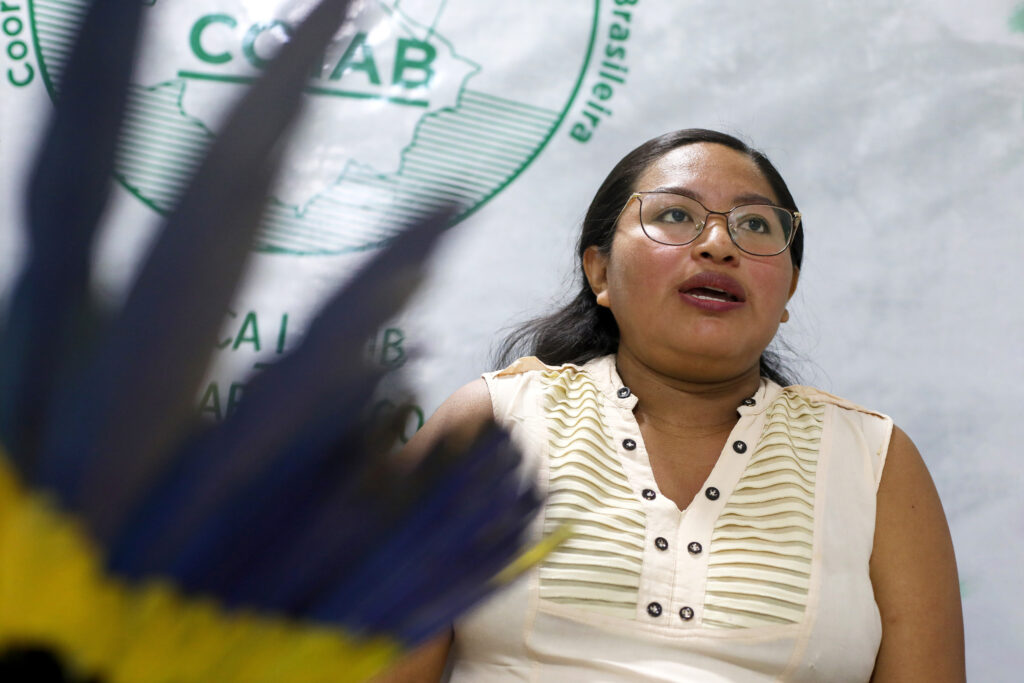
Activist Marinete Almeida addresses reporters on the headquarters of COIAB, one in all many Amazon’s largest indigenous coalitions. (©Michael Dantas for the UN basis)
Marinete Almeida
Advocating for the Amazon and its Indigenous Inhabitants
throughout metropolis of Manaus, a brief drive from the Amazônia exact newsroom, Marinete Almedia is meeting a gaggle of world journalists on the headquarters of the Coordination of the Indigenous Organizations of the Brazilian Amazon (COIAB), one in all many largest and most revered coalitions of its form inside the Amazon Basin. COIAB represents better than a hundred and sixty fully different communities, and Marinete is amongst the numerous many indigenous activists who make up the group’s community.
“Being at this desk talking could be very rewarding as a outcome of we have gotten to echo our voices for the visibility of our struggles,” Marinete, who’s a member of the Tukano people and serves as a coordinator for Makira E’ta, an alliance of indigenous ladies in Amazonas, instructed the visiting reporters. “We should be talking, denouncing, saying what we want, saying what we really feel as ladies and indigenous people.”
As inhabitants and guardians of the Amazon, Brazil’s indigenous communities function essential obstacles in direction of deforestation. defending what stays of the world’s largest rainforest is a matter of world — even existential — significance. Saving this ecosystem particularly is essential for the planet’s survival. If too many timber are decrease down, scientists warn that the Amazon may attain a tipping level the place it irreversibly degrades into grassland, triggering catastrophic environmental penalties for every nation on this planet. It’s why reporters from as far-off as Indonesia and Zimbabwe have traveled to Brazil to communicate with native leaders like Marinete.
For her, environmental rights, indigenous rights, and ladies’s rights are inextricably entwined. She says there are nonetheless too few conversations taking place with regard to the abuse, exploitation, and erasure of indigenous ladies in Brazil, particularly with the surge of illegal mining, ranching, and logging that has occurred on protected territory in current occasions. “Our lands are being invaded,” she says.
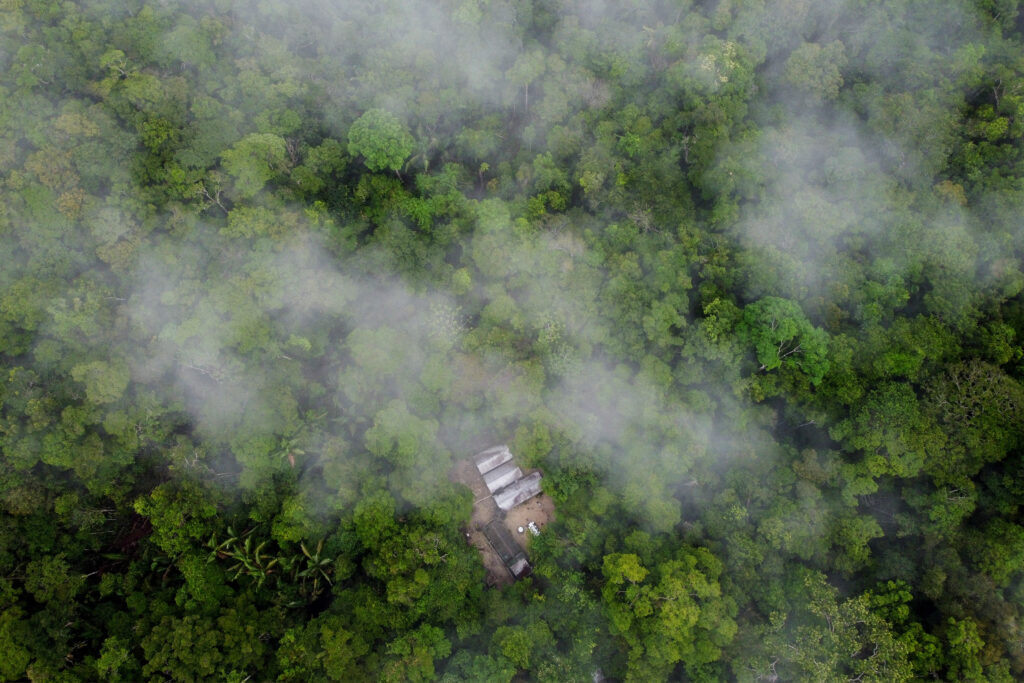
An aerial view of an ecological evaluation station inside the Brazilian Amazon. Safeguarding the well being of the world’s largest rainforest is essential for supporting indigenous communities, defending biodiversity, and addressing local climate change. (©Michael Dantas for the UN basis)
Indigenous ladies in Brazil are confronting violence on three separate fronts, Marinete says. “these days, we have gotten had many setbacks in our rights as ladies, which embody the becoming to freedom from violence in our territory, safety from social violence attributable to public insurance coverage policies that unfairly goal us, and, lastly, freedom from violence in direction of our personal our bodies.”
Marinete’s roots as a ladies’s rights activist will be traced to her childhood. rising up with an abusive father, she found at a youthful age how ladies and ladies are subjected to violence in all spheres of life. the methodology by which she sees it, the land violations that embody inherently damaging industries are a continuation of violence in direction of indigenous ladies and ladies. And as fundamental caretakers, they’re typically the fundamental to witness and confront the environmental and well being implications of deforestation. “we’re the fundamental to really feel it as a outcome of our kids are dying,” she says.
“we do not battle solely for ourselves, however for everyone — as a outcome of the standing forest is life.”
MARINETE ALMEIDA
Tukano Activist
By becoming a member of forces and refusing to be made invisible, Marinete says indigenous ladies are conquering political areas that have been beforehand closed off. “we have gotten to empower youth — particularly youthful ladies — to have the power to focus on our wants: How local climate change impacts us, how we’re struggling collectively, why we have gotten to defend our territory, why we don’t want gold to be eliminated, and why we don’t want wooden to be decrease down.”
however this outspokenness comes at a worth. Like Elaize and fully different journalists who’re exposing the culprits behind the nation’s environmental destruction and human rights violations, activists like Marinete are additionally more and more under assault. “The demise threats have been rising,” she says. “Many occasions this event will get so sophisticated that it is important to depart our territory as a outcome of our lives are in hazard.”
nonetheless, she says the movement to shield the rainforest and safeguard indigenous rights continues to develop every day: “collectively with our warriors, collectively with our companions, collectively with the white people who’ve additionally been carrying this set off, we’re getting stronger and stronger,” she says. “we’re not going to be silent whereas we’re shifting,” she says. “we’re going to shed every final drop of blood.”
“Like many indigenous ladies who battle for numerous rights, it’s primarily with regard to the becoming to a dignified life,” Marinete says. “We don’t battle solely for ourselves, however for everyone — as a outcome of the standing forest is life.”
ought to be taught extra?
impressed by their work to shield the planet and our future?
be taught extra about worldwide local climate movement and what it can take to shield life on Earth.

